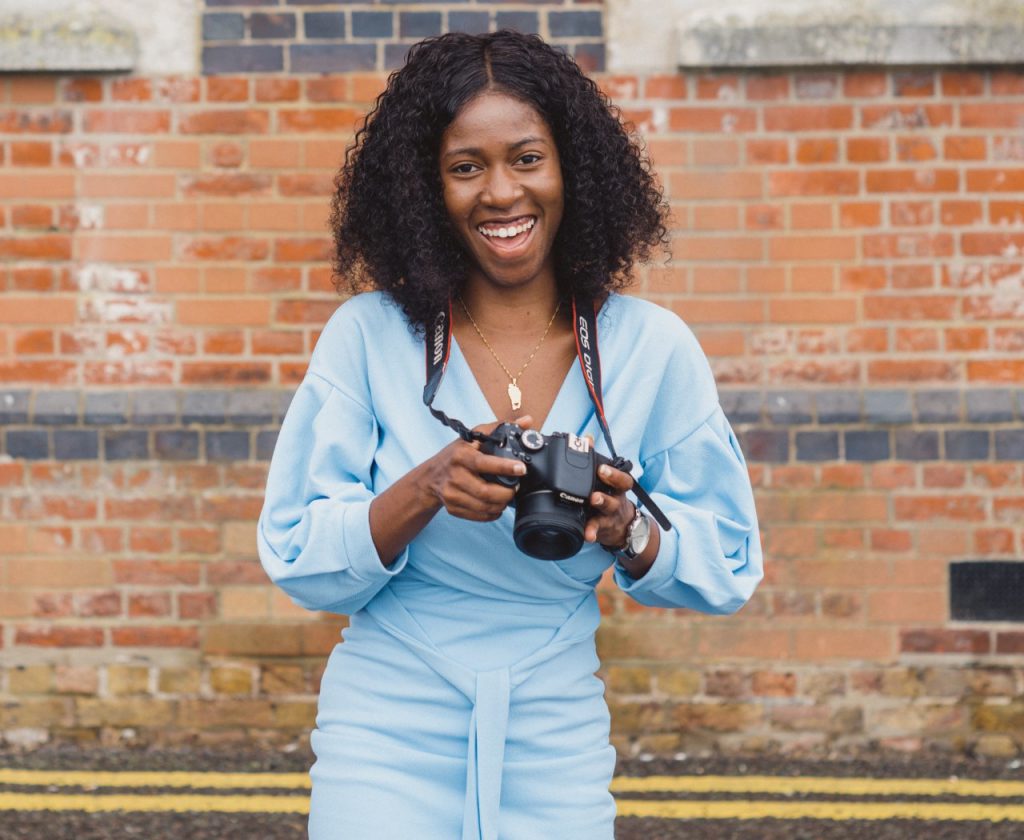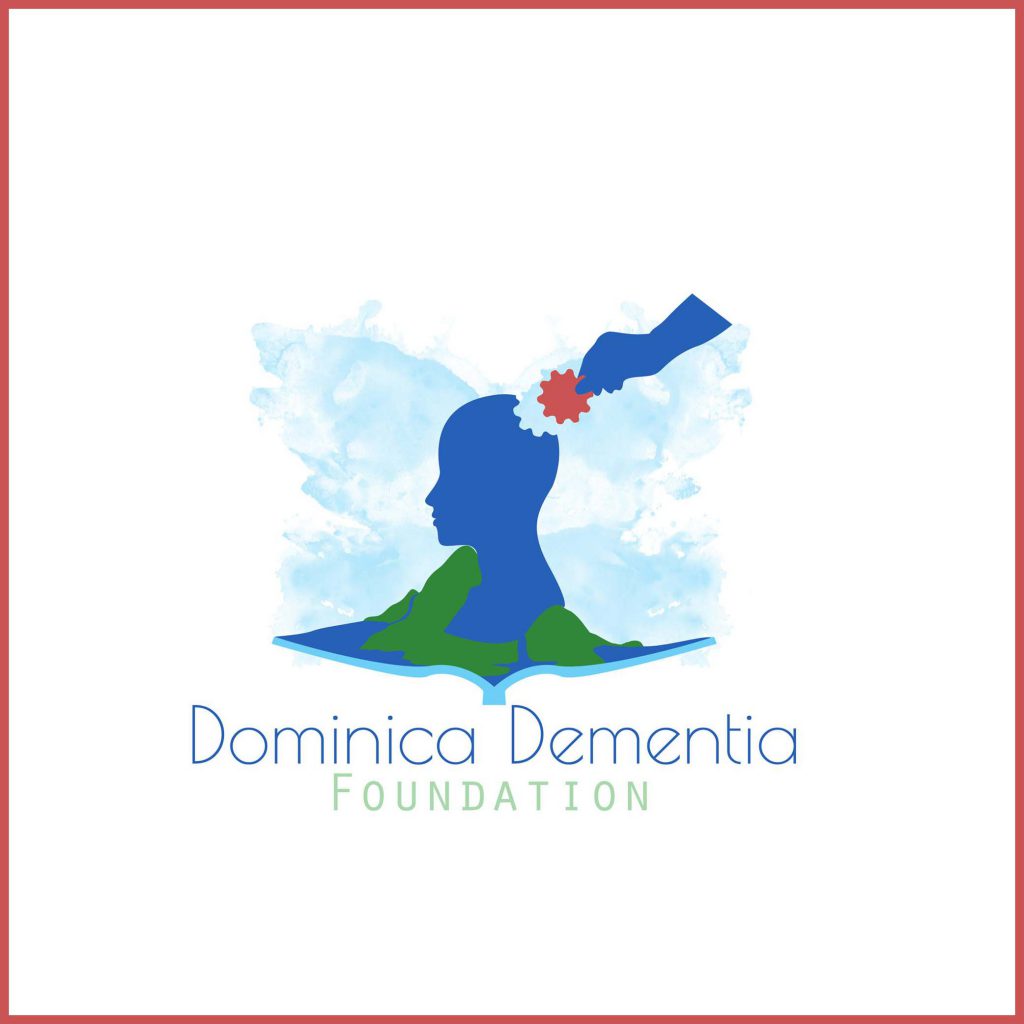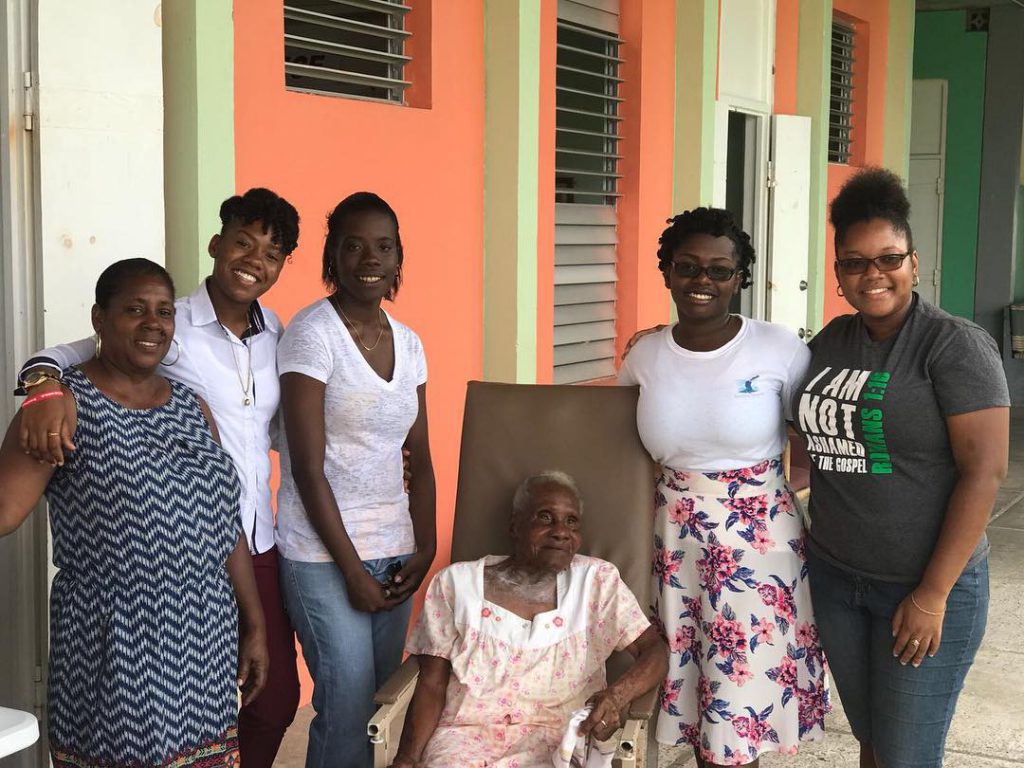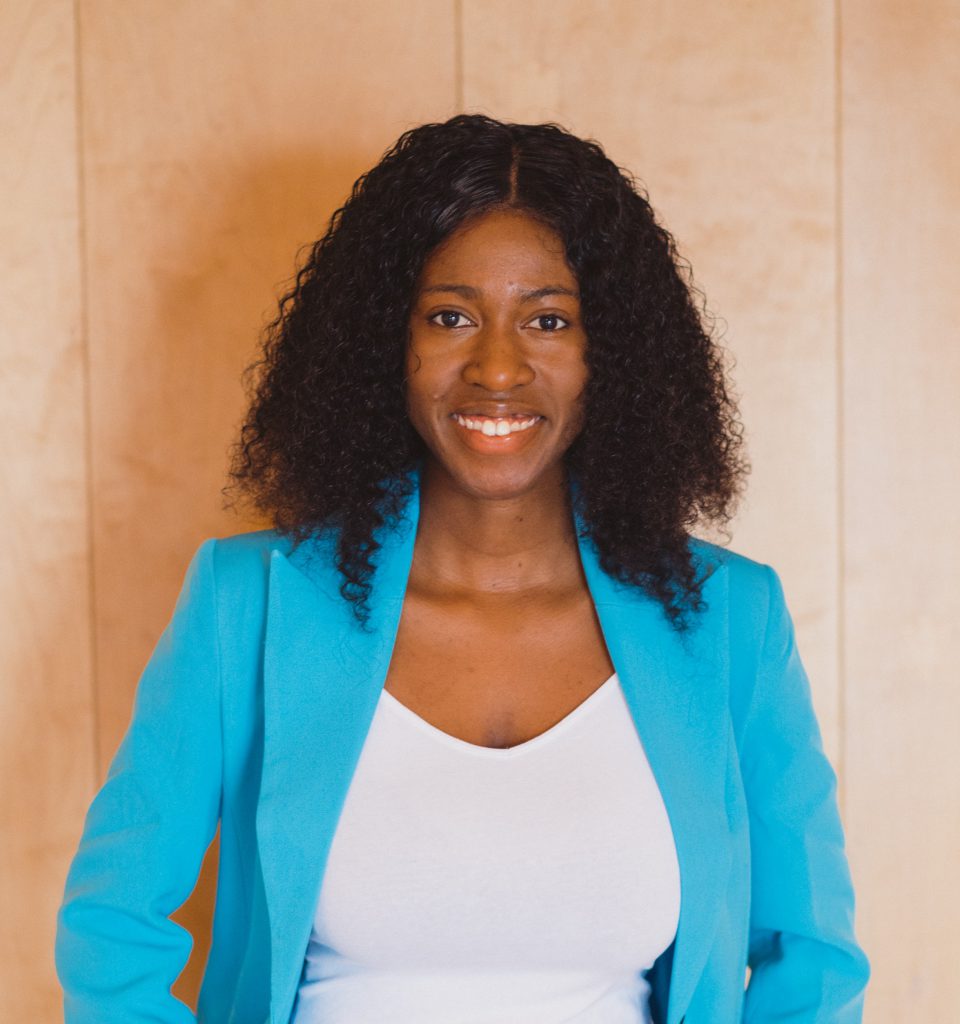Yello Interviews: Rianna Patterson, Founder of the Dominica Dementia Foundation
by Karen Rollins Oct 5, 2020

Rianna Patterson was inspired to start the Dominica Dementia Foundation in 2016 after her grandfather was diagnosed with the illness three years earlier.
The charity aims to raise awareness about dementia, mental health, and the treatment of elderly people. It has worked with schools, care homes and healthcare professionals and its campaigns have reached over 4,000 individuals.
Rianna’s advocacy work was recognised in 2017 when she was honoured with the prestigious Queen’s Young Leaders Award.
Rianna spoke with Yello from the UK where she has just finished a degree in psychology at Kent University. She told us more about the Foundation and a feature film she is currently producing to tell the stories of older people coping with dementia throughout the Caribbean.
Describe yourself using three words.
Ambitious. Creative. Enigmatic.
Please tell us about your background.
I was born in Hackney in the UK but went to live in Dominica when I was about three or four years old.
In Dominica, I grew up in Picard, Portsmouth. I had all my schooling on the island up until college.
My childhood had its good and bad days. On the good days I spent time with my family and friends. On the bad days, I was bullied because of my English background and accent.
Were you always interested in helping people / charity work?
I was very shy when I was young and would mainly help out in the background.
I would join clubs and societies, but I would never go up for significant roles like the President or Treasurer, or anything that would put me in the forefront.

What was the motivation for starting the Dominica Dementia Foundation?
My grandfather was diagnosed with dementia in 2013. It was a very difficult time. Honestly, I’d never experienced anything like it.
I only knew about illnesses like dementia and Parkinson’s from a three-minute advertisement on TV which doesn’t really give you enough information. It was only when I had a family member affected that I decided to find out more about it.
Seeing dementia in someone very close to me definitely made me want to learn more and sparked a deeper interest.
It must’ve been traumatic, watching someone you love deal with that?
Yes, it was, and it was very rapid. They said it would be, but I did not understand until I saw it progressing so quickly. One day we were talking about a leak in the house and the next he couldn’t remember his name or the name of his wife who he’d been married to for over 50 years. It’s very frightening.
I was 16 at the time and in my final year of high school. It was tough preparing for exams but still trying to spend time with my grandfather and helping the family as much as possible.
Not being able to speak to my peers was one of the hardest parts. I mentioned it to my close friends, but they didn’t really understand the full extent, which is understandable because I didn’t either.
It was difficult not having a place to go to talk to someone who specialises in dementia. I spent a lot of time in the hospital, and there were a few practices that I didn’t agree with, which led to some frustration and concern about care for elderly people in general. So, that was when I got the motivation to start the Foundation.
How did you go about starting up the Foundation? What did it involve?
I started it after I graduated from college in September 2016.
I was looking at a document I put together in college about what I wanted to achieve, and on the list was ‘start a Foundation’. I thought to myself “why did I write that?”, especially when I’m quite a shy person.
I thought about it some more, and I realised the story about my grandfather was a strong message. Dementia is also a topic that I’m interested in and passionate about, so I thought “let me start a dementia foundation”.
But saying it was obviously easier than doing it because there is so much involved. I had to get a lot of information from senior advisors and professional help just to get it beyond pen and paper.
What programmes and services does the Dominica Dementia Foundation offer?
We’re trying to create a support system for families who have a loved one with dementia, but that’s in the early stages.
We have a Dementia Friends programme for anyone who wants to be trained as a Dementia Friend or a Dementia Friend Champion. The programme explains more about what dementia is, how to get support, and we also find out what they plan to do with the training afterwards. The Dementia Friend Champion can also lead sessions to train other people.
We’ve worked with local care homes, schools and conducted educational media campaigns which have reached over 4,000 people.
We also produced a research piece on dementia in Dominica, which ties into the feature film we’re making about older people in the Caribbean.

Tell us more about the film.
The film will highlight elder stories and show the realism of dementia. It’ll look at people living well with dementia and ageing well. I want to focus on Dominica, but I also want to include other Caribbean countries too.
The idea came about from looking at ageism in the media and seeing the language that is used, especially in terms of talking about black people and mental health. In general, I think there is a negative approach which means our people are suffering a lot and we shouldn’t be.
Even I’ve been called out for using the word ‘suffering’ before because words like that make people think negatively, and then they don’t want to tell anyone what they’re going through. All of that has an impact on people not getting diagnosed and research not getting to the point. So, we need to be more honest with ourselves and each other about what’s going on with us.
What stage are you at with the film?
I’m in the developmental stages at the moment.
I’ve found it challenging to raise funds because there’s a lot of competition in the film industry and I don’t have much experience. That’s why I’ve turned to crowdfunding. I’ve just shot the crowdfunding video, and I’m working with an editor to put it together.
I’m aiming to publish the crowdfunding page in November. The film should be ready for distribution in November or December 2021.
I’m hoping it’ll bring about lasting change and become a valued resource. I also want to use the film as a gateway to developing further awareness of dementia in Dominica and around the Caribbean. It would also be great to connect with other people in the region who are working for the same cause.
What are your plans for the Dominica Dementia Foundation in the future?
I just want us to continue supporting families and care homes but on a larger scale. I think it’s important to do more media campaigns and develop more research because we really rely on the information.
I want to find out from people what they need as well so we can create programmes and strategies based on feedback. Also, liaising with the government and establishing that relationship so we can collaborate further.
What is the attitude towards dementia in Dominica?
I think a lot of people don’t want to tell their story because of the stigma. People worry about what the community will think. But once we start telling the stories, and normalising it, it’ll become easier for everyone.
I don’t think we’re a dementia-friendly island just yet, but we’re getting more accepting, especially in terms of talking about mental health.
What would it take for Dominica to be a dementia-friendly island?
It means getting everyone involved like businesses and bus drivers. I’ve been on buses when the driver has become frustrated with older people because they’re slower, but it goes for all sectors.
People need to be aware and develop patience. People in shops need to be mindful and focus on the customer experience. We all need to come together and support this cause.

What do you do personally outside of the Foundation?
I do illustrations, videography, photography, and sometimes I write. I want to do more commissioned work. I’m also marketing, business pathways and Young Adult programme lead at ReapSource (a tech startup company).
I’d like to do some brand consulting and training because I have a lot of specialised knowledge from starting the Foundation.
Even now, in terms of developing the film, I’m gaining knowledge about fundraising and other tools which I can share with communities and others in the social change arena.
And you received the Queen’s Young Leaders Award in 2017, what was that like?
It was a crazy time. I had only just finished college and was working at my first job at a magazine in Dominica. I was also trying to start the Foundation, and 90% of my money was going towards setting that up with support from my grandmother.
I got the call while I was on the way to work with my boss. I remember saying: “What, me?”.
It was a thrilling time, and my family were so proud of me. Then going on the residential week was so impactful. I made a lot of good connections and friends for life.
Meeting the Queen was so nerve-wracking. I was just focusing on not falling and embarrassing my country (laughter). But it was humbling and amazing to be in the same room with such influential people. I’ll never forget the lessons I learned from that experience.
What’s your motto / philosophy in life?
Proverbs 3:6 is a verse I always go back to. It’s basically saying that God will direct your steps. It has really brought me out of difficult times.
My grandmother died in 2019, and the last year of university was chaotic and stressful, but that verse got me through.
It even led me to my boyfriend because he has that scripture tattooed on his arm. Whenever I see that verse, it brings me to something great!
Tell us something, only a few people know about you.
I used to have relaxed hair. I went back to my natural hair after college. It was not easy in the beginning, so I had to be patient, but now it’s more manageable.
If you could have one superpower, what would it be? Why?
Invisibility or maybe teleportation. I’m always mentally in the Caribbean so if I could teleport to Dominica or St Lucia that would be great.
—
Find out more about the Dominica Dementia Foundation on Facebook, Twitter, or the website.
You can also learn more about Rianna’s film Dementia: The Island Journey on Instagram or Facebook and support the project via crowdfunding.








